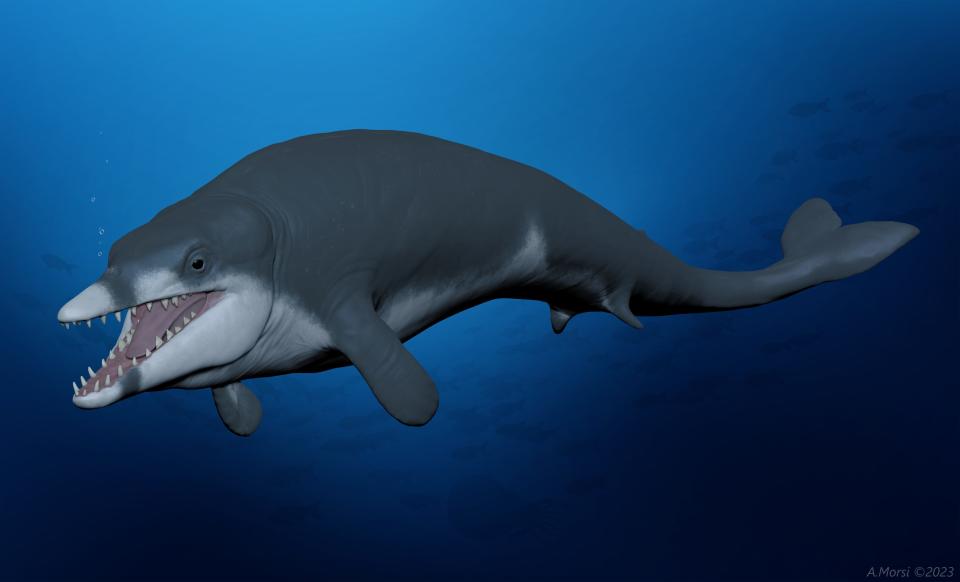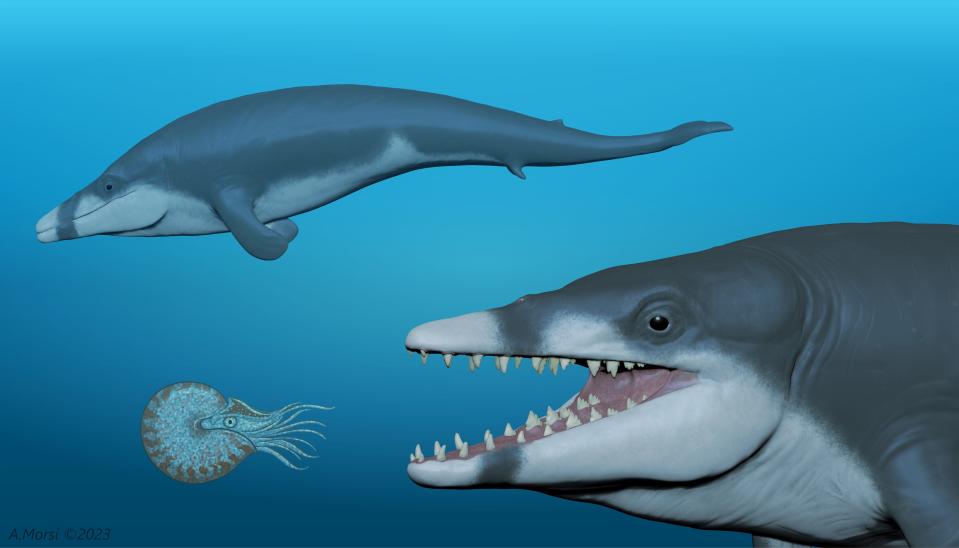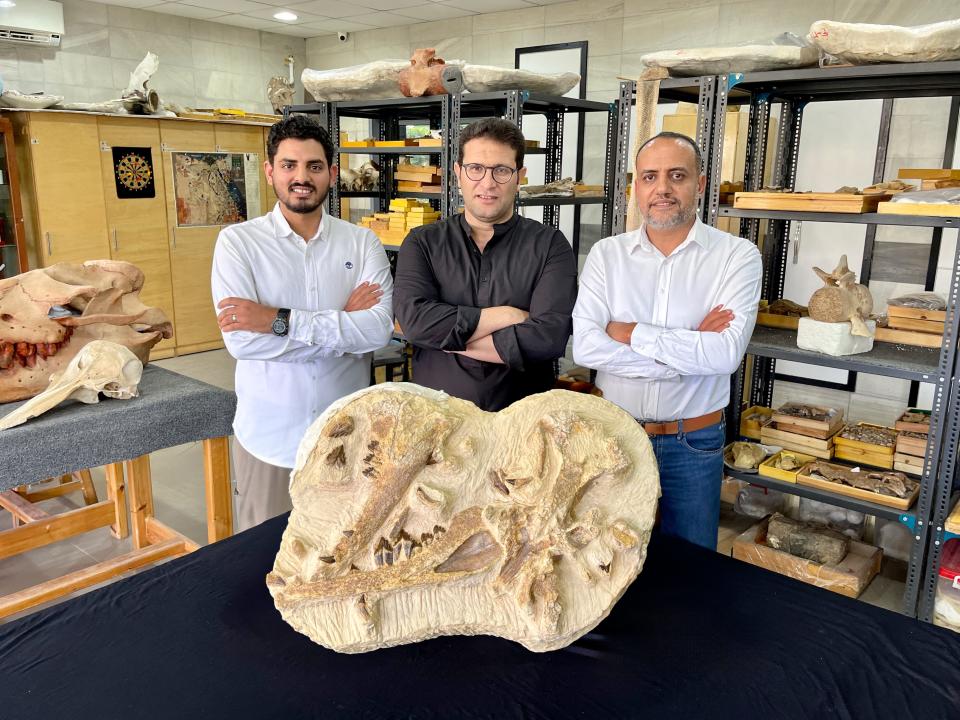Pharaoh of a whale: Smallest-ever ‘King Tut’ fossil found in Egypt
Scientists have discovered a 41-million-year-old fossil that may be the smallest whale species ever to swim the Earth's oceans.
Discovered in Egypt, the previously unknown species is the tiniest cetacean ever found. It's estimated to have been only 8 feet long and weighing 400 pounds.
The fossil has been dubbed Tutcetus rayanensis – the King Tut whale – after the ancient Egyptian pharoah Tutankhamun.
The discovery comes just a week after a paper described the discovery of what may have been the heaviest animal that ever lived on Earth: a gigantic ancient whale that may have been two to three times as heavy as the modern blue whale.

Tiniest whale ever discovered
Whales first emerged during the Eocene period 47 million to 56 million years ago. They were originally small, four-legged goatlike creatures that lived on land but later moved into the oceans.
The first fully aquatic whales belonged to the extinct Basilosauridae family. They ranged in size from the 13-foot Saghacetus osiris to the 60-foot Basilosaurus cetoides. The King Tut whale is the smallest member of this primitive family. It was discovered by a team of Egyptian paleontologists in the Fayum Depression in the Western Desert of Egypt, which was once covered by an ocean.
The fossil appears to have been an adolescent whale near adulthood because its permanent teeth had emerged. The researchers believe these whales were relatively short-lived because their permanent molars emerged before their permanent premolars, which is common in mammals with shorter life cycles.
The whale's small body size may have evolved because it lived in a period of climate warming, known as the Lutetian thermal maximum, about 42 million years ago. Animals tend to evolve smaller bodies in warmer climates because fewer food resources are available.
Their discovery was published in the journal Nature Communications Biology.

Reach Elizabeth Weise at eweise@usatoday.com
Contributing: Doyle Rice

This article originally appeared on USA TODAY: Pharaoh of a whale: Smallest-ever ‘King Tut’ fossil found in Egypt

